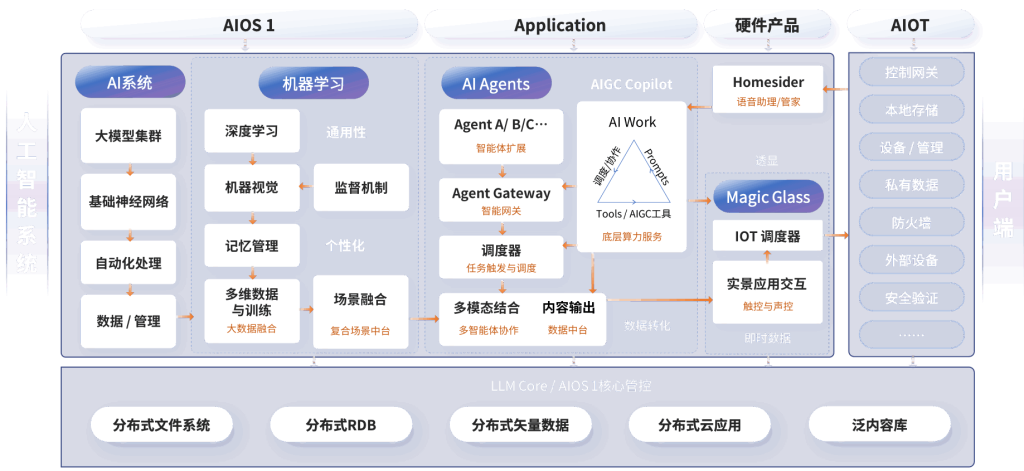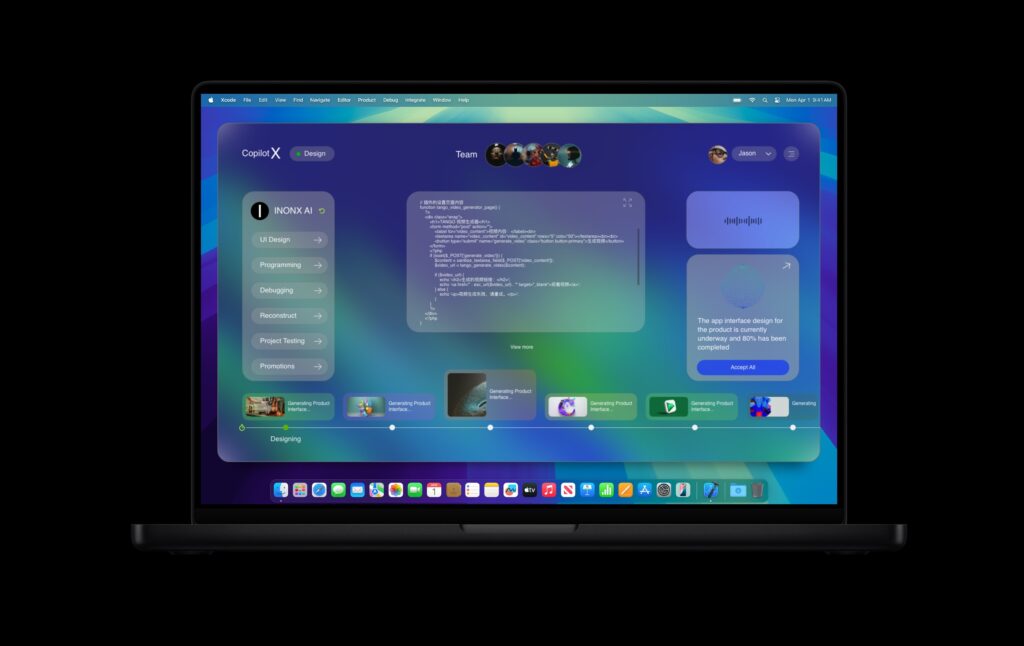Artificial Intelligence (AI) continues to be at the forefront of technological advancements, making significant strides across various sectors. From enhancing sales strategies to monitoring human rights violations, AI is not just reshaping industries, but it is also playing a crucial role in social awareness and accountability. This article delves into the latest trends and pivotal developments within the realm of Artificial Intelligence, focusing on three significant areas: AI-Driven Sales Strategies, AI in Human Rights Monitoring, and Real-time Path Monitoring.
AI-Driven Sales Strategies
The business landscape has been radically transformed by AI, particularly in sales strategies. Leading companies are increasingly leveraging AI technologies to streamline operations, enhance customer experiences, and ultimately drive sales growth. Predictive analytics, powered by machine learning, enables businesses to forecast customer behavior and tailor their marketing strategies accordingly.
Recent studies reveal that companies employing AI in their sales strategies have reported revenue growth of over 30%. For instance, Salesforce, a leader in customer relationship management (CRM) systems, introduced Einstein, an AI-powered analytics platform that provides sales teams with data-driven insights to predict customer needs and personalize offerings. This functionality not only boosts efficiency but also fosters a more profound connection with clients.
Moreover, natural language processing (NLP) capabilities are being harnessed by sales teams to analyze customer feedback and sentiment across various channels, from emails to social media platforms. By understanding customer pain points and preferences, companies can adapt their sales pitches, ensuring higher conversion rates. As AI technology continues to evolve, further innovations are expected to emerge, such as conversational AI that will enable more seamless interactions between sales representatives and clients.
A notable example comes from Amazon, which has integrated AI into its sales approach by implementing sophisticated recommendation algorithms. These algorithms analyze purchasing behavior to suggest products that customers are more likely to buy. Such AI-driven technologies not only enhance the shopping experience but also significantly contribute to businesses’ bottom lines.
AI in Human Rights Monitoring
While AI has transformative implications in business, its societal applications are equally important. In recent years, the integration of AI in human rights monitoring has gained traction, serving as a critical tool for NGOs and governments to uphold accountability and justice. AI technologies are being applied to analyze large volumes of data, enabling quicker and more accurate identification of human rights abuses.
Organizations like Amnesty International are harnessing AI to scrutinize social media content and satellite imagery for evidence of human rights violations in conflict zones. Through machine learning algorithms, vast datasets can be analyzed to identify patterns indicative of abuse or oppression. The release of their latest report highlights AI’s capability to uncover instances of enforced disappearances and extrajudicial killings, which would otherwise go unnoticed due to limited resources.
In addition to data analysis, AI is also facilitating the development of mobile applications that empower users to report human rights violations anonymously. Initiatives like the “Hear Me” app allow individuals in oppressive regions to document incidents safely and securely. These contributions are crucial in providing evidence to support fact-finding missions and advocating for policy changes.
Moreover, AI’s potential to establish an interactive platform for reporting and analyzing abuses has been recognized by various governments seeking to improve their human rights records. By fostering collaboration between technology firms and human rights organizations, AI can enhance transparency and accountability in monitoring systems, ultimately promoting better societal standards.
Real-time Path Monitoring
Real-time path monitoring is another significant area where AI is making considerable advances. The application of AI in logistics and transportation has revolutionized how companies manage their supply chains and ensure timely delivery of goods. Using machine learning algorithms, businesses can track shipments in real-time, enabling proactive responses to potential delays or disruptions.
Logistics companies like UPS and FedEx are implementing AI-driven solutions to optimize their delivery routes. By analyzing traffic patterns, weather conditions, and historical delivery times, these systems can dynamically adjust routes to minimize delays. Furthermore, AI not only aids in route optimization but also allows for predictive maintenance of delivery vehicles. This capability involves forecasting mechanical issues before they arise, thereby reducing downtimes and enhancing overall efficiency.
In the realm of public transportation, AI is being used to improve service quality and operational efficiency. Cities worldwide are deploying AI systems to manage traffic signals and public transit schedules dynamically. For example, in cities that face congestion, real-time data can inform adjustments in traffic patterns, leading to reduced travel times and improved commuter experiences.
Additionally, ride-sharing services like Uber and Lyft leverage AI algorithms to balance supply and demand effectively. By analyzing real-time user data and historical trends, these platforms can optimize driver assignments and predict rider demand in specific areas. This enhances user satisfaction while maximizing drivers’ earnings.
However, the use of AI in real-time path monitoring is not without challenges. Privacy concerns related to data collection and surveillance are prominent, leading to discussions about the ethical implications of monitoring technologies. Striking a balance between efficiency and privacy remains a critical focus for corporations and regulators alike.
Conclusion
The latest advancements in Artificial Intelligence reveal its far-reaching impact on various sectors, from revolutionizing traditional sales methods to ensuring accountability in human rights monitoring and enhancing the efficiency of logistics through real-time path monitoring. The potential of AI to facilitate positive change is immense, yet it comes with its challenges. As we continue to explore and implement AI technologies, it is crucial to address ethical considerations and accessible frameworks that prioritize privacy and accountability.
In summary, AI is not simply a technological innovation; it is a transformative catalyst shaping the future of industries and society. As developments continue to unfold, ongoing research and collaboration will be essential to maximize AI’s benefits while minimizing its risks.
Sources:
1. Salesforce Einstein AI Overview: https://www.salesforce.com/products/einstein/overview/
2. Amnesty International Reports on AI and Human Rights: https://www.amnesty.org/en/latest/research/2023/05/ai-human-rights-violations-report/
3. UPS Innovations in Logistics: https://www.ups.com/us/en/services/technology/ai.page
4. Public Transport and AI: Case Studies Around the World: /https://www.itu.int/en/ITU-T/Artificial-Intelligence/Pages/public-transport.aspx
5. AI in Ride-Sharing: Uber and Lyft Approaches: https://www.uber.com/us/en/about/ai-research/
Through collaboration and diligence, the future of AI holds promise for not just improving business practices but also for fostering a just and equitable society.


























